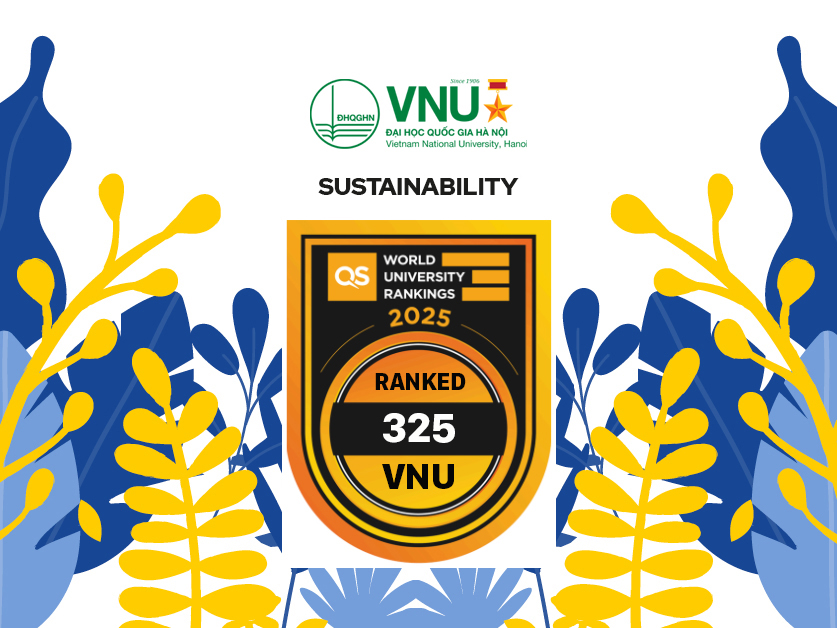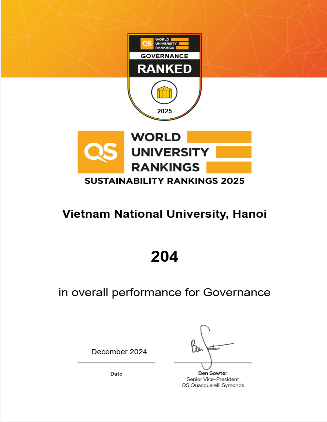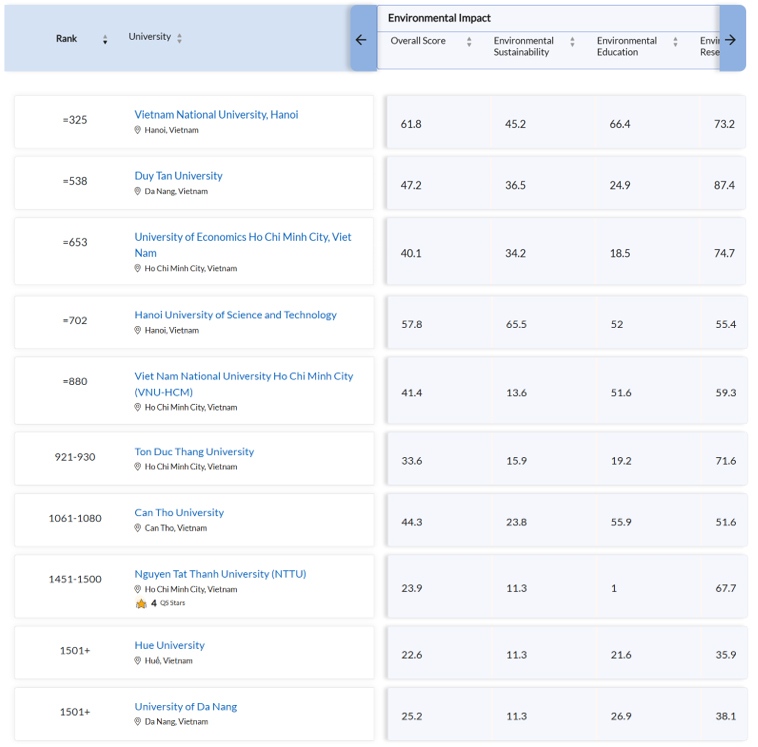The QS WUR Sustainability Rankings provide a unique insight into how higher education institutions are implementing their commitment to sustainable development in line with national responsibilities, comprehensively assessing higher education institutions around the world on their commitment and impact on sustainable development through research, teaching and community service. The rankings show the extent to which universities contribute to three key areas: Environmental Impact, Social Impact, and Governance. In the QS Sustainability Rankings 2025, VNU has increased its scores in all three criteria: Governance; Environmental Impact; Social Impact.
University governance: position 204. Implementing the governance perspective with the goal of sustainable development, VNU has achieved position 204 in Governance standard - this is also the highest ranked standard of VNU, affirming transparency, ensuring ethics, responsibility and efficiency in governance and organizational operations of VNU.
Impact of higher education institutions on the environment: position 364. The efforts that VNU is making to contribute to changing the world for the better through research in areas such as environmental science, climate change and the impact of alumni in creating a more sustainable world have brought VNU to rank 364 in Environmental Impact standard.
Graduate Impact on Society: 399th. VNU’s ongoing programs to improve society, share knowledge, and train graduates who have meaningful impacts on society have brought VNU a ranking of 399 in the Social Impact criterion.
VNU’s contributions to building a more sustainable future environment and society are clearly demonstrated through the increase in rankings in all criteria participating in this year’s ranking, including: Environmental Education; Environmental Research; Environmental Sustainability; Employment and Outcomes; Equality; Health and Well-Being; Educational Impact; Knowledge Sharing and Good Governance. This result once again affirms VNU’s unique strengths in governance, training, research on sustainable environments, and knowledge exchange. In particular, in this period, the Knowledge Exchange criterion is the highest ranked criterion of VNU, ranked 189th in the world (up 264 places compared to 2024). This shows the contributions and influence of VNU in research cooperation with the domestic and foreign academic community, sharing knowledge to promote educational growth, and being ready to become a global research partner. In addition, the Equality criterion is ranked 340; Environmental Education is ranked
350 in the world.
This ranking result once again demonstrates the correct governance method of VNU's leadership as well as the efforts of all staff, scientists and learners of VNU in creating and disseminating new knowledge, cutting-edge scientific research, commitment to education for sustainable development and community outreach. The governance strategy ensures that sustainable development becomes an integral part of VNU's governance culture, fulfilling the mission of a contemporary higher education institution in contributing to the common prosperity of the community. At the same time, this ranking result is also an important achievement in contributing to the implementation of Resolution 45-NQ/TW dated November 24, 2023 on achieving the goal by 2030: "Developing a number of advanced research and higher education institutions, among the leading ones in Asia; bringing VNU into the top 500 universities in the world".




